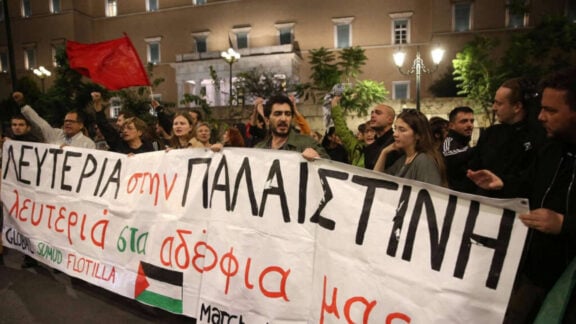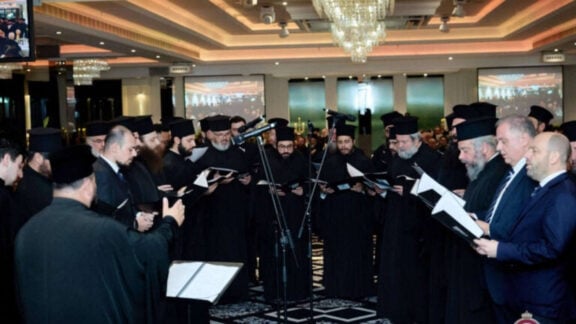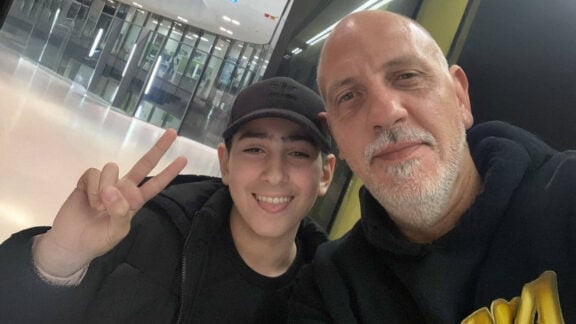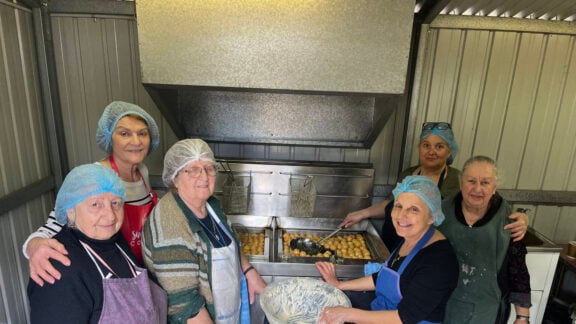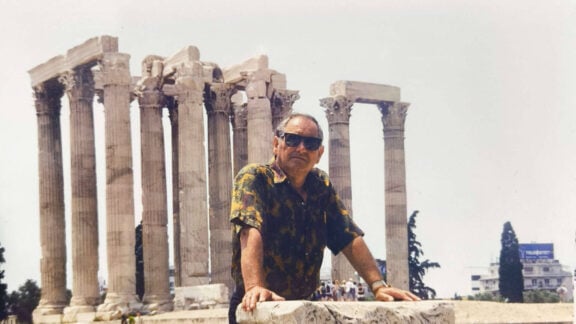It is telling of Melbourne’s status as one of the multicultural capitals of the world that one of the best offerings of Greek music is that of a mixed musical marriage.
Jenny Theologidis and Wayne Simmons have long been performing under the moniker Polyxeni, thoroughly exploring the tradition of rebetiko and urban Greek folk laika songs, a period spanning from the turn of the 20th century to the 1950s, but also their offspring, the roots-based work of composers and songwriters such as Nikos Papazoglou, Nikos Xydakis, Orfeas Peridis, Thanassis Papakonstantino and so on – those labeled as entechno artists.
The duet is often augmented by other musicians and it is this extended group that will be performing at The Boîte (1 Mark Street, North Fitzroy) on Saturday. The paradox, of course, is that, apart from Jacob Papadopoulos (one of the best bouzouki players in Melbourne), Polyxeni will be joined by fiddler Sally Taylor and bassist Adrian Close. A Greek band in which Greeks are a minority? Talk about a paradox that could only happen in Melbourne.
Jenny Theologidis herself suggests that we should not read too much into it.
“It is very hard to find a traditional fiddle player in Melbourne,” she says, praising the artistry of Sally Taylor, who’s a classically-trained violinist with a deep knowledge of English folk music, used to playing music more than 150 years old. That she has been indicted to Greek traditional music by an Australian such as Wayne Simmons is also a paradox.
“He is the one writing the charts and doing the arrangements,” says Jenny, describing how he became fascinated by the treasure of Greek music, working as a teacher at Alphington Grammar. “He can understand this music, because he has been through a lot himself,” she explains.
As for herself, she admits that she could never be interested in singing contemporary pop music. With a voice and phrasing that evokes some of the greatest voices in the history of rebetiko (Marika Ninou, Roza Eskenazy, Stella Haskil) and brings to mind the early days of Eleftheria Arvanitaki, she seems to have been born to sing this material.
“I can’t explain it, but I have been very moved by this music ever since I was a little girl; when I was going to church with my family, all I cared for was the Byzantine chants, I didn’t pay attention to anything else,” she remembers. “Maybe because my father’s origins are from Asia Minor.”
The songs of this area will be the focus of Saturday’s performance. “Very few groups in Melbourne play the music of Asia Minor,” says the singer, explaining the group’s decision to present a night of music dedicated to the musical tradition that formed Greek urban music, after the war that resulted in the Asia Minor Catastrophe, the destruction of Smyrna and the uprooting of a population that became refugees to the mainland of Greece.
Apart from that, the group will also focus on the music of Manolis Chiotis, the man who revolutionized the bouzouki, incorporating the western and Latin sounds of swing and mambo.
“We will not play these songs, though,” she’s quick to point out, “but his earlier songs, from 1945 to 1952, which were more traditional rebetika.”
Talking about the interest of an eclectic, mixed audience to discover this vast and somewhat ignored musical tradition, she also offers some insight into what drives people like herself, Wayne Simmons and the other musicians that work with Polyxeni.
“We are all looking for what does not exist any more, what is long-gone and that we feel the need to keep present”.

